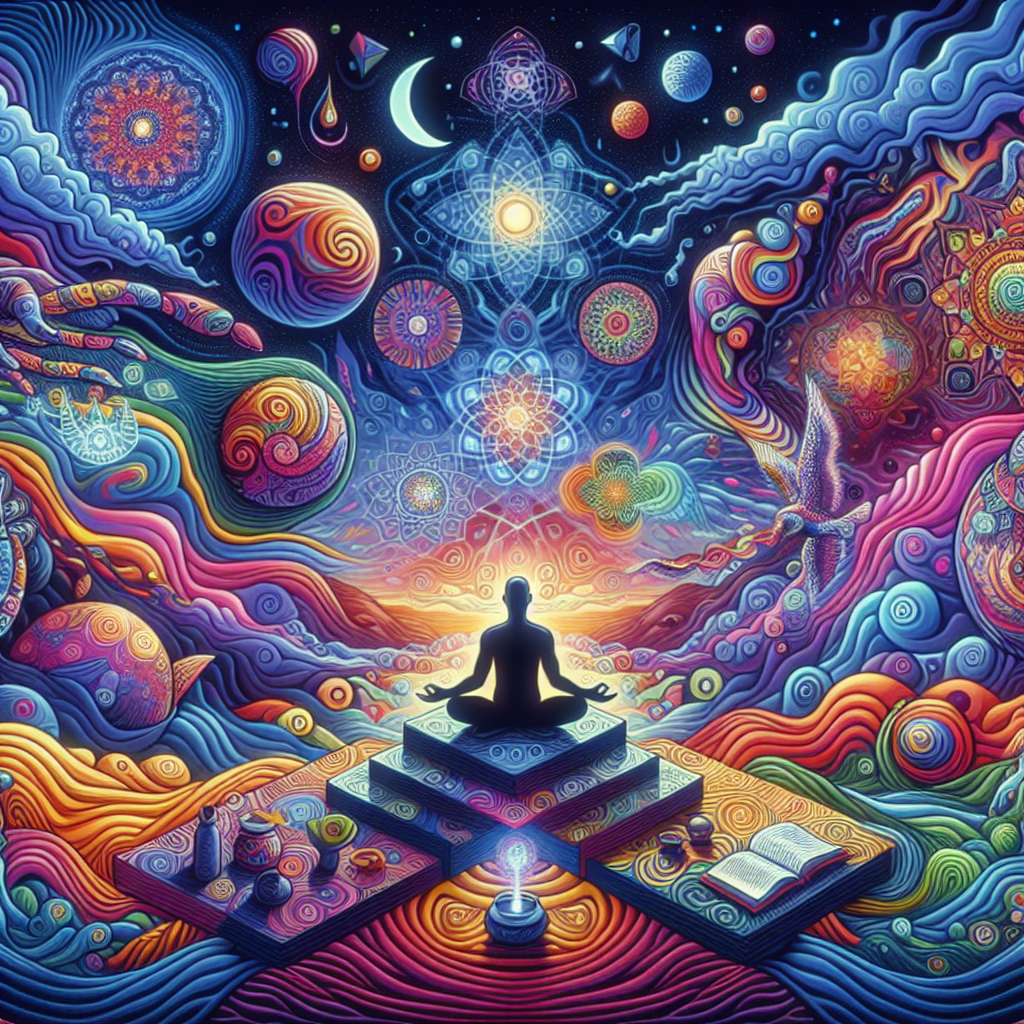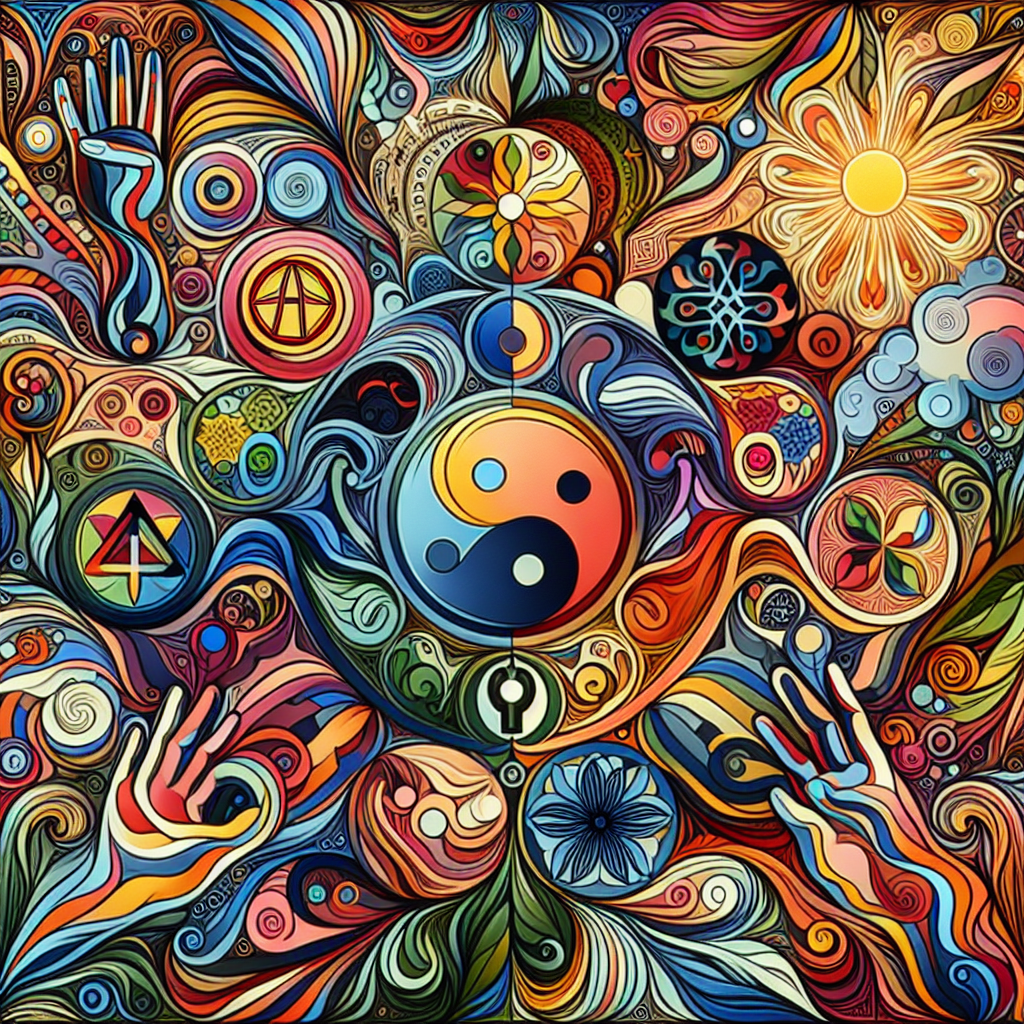The Role of Psychedelics in Holistic Well-Being

Discover the role of psychedelics in holistic well-being today! Uncover the potential benefits and transformative power these substances can have on your overall health. Visit My Vibrant Vitality now to learn more.
Exploring the Impact of Psychedelics on Emotional and Mental Health
Psychedelics, once relegated to the fringes of society, are now experiencing a renaissance in the realm of mental health and holistic well-being. These substances, which include LSD, psilocybin (found in magic mushrooms), and DMT, have been the subject of numerous scientific studies in recent years. The results have been nothing short of astounding, revealing that psychedelics may have a profound impact on emotional and mental health.
Psychedelics work by interacting with serotonin receptors in the brain, which can lead to alterations in thought processes, perceptions, and emotions. This can result in experiences that are often described as mystical or spiritual, and which can lead to significant shifts in one’s perspective on life. These experiences can be deeply healing, allowing individuals to confront and resolve deep-seated emotional issues, traumas, and fears.
One of the most promising areas of research involves the use of psychedelics in the treatment of mental health disorders such as depression, anxiety, and post-traumatic stress disorder (PTSD). Traditional treatments for these conditions often involve pharmaceuticals, which can have significant side effects and may not be effective for all individuals. Psychedelics, on the other hand, offer a different approach. Rather than simply managing symptoms, they appear to facilitate a deep, transformative healing process that can lead to lasting change.
For instance, a study published in the Journal of Psychopharmacology found that a single dose of psilocybin, combined with psychotherapy, led to significant improvements in emotional well-being and life satisfaction among individuals with life-threatening cancer diagnoses. These improvements were still evident six months after the treatment, suggesting that the benefits of psychedelics may be long-lasting.
Another study, published in the American Journal of Psychiatry, found that MDMA-assisted psychotherapy was significantly more effective than psychotherapy alone in treating PTSD. Participants who received the MDMA-assisted therapy showed a greater reduction in PTSD symptoms and a higher rate of remission than those who received psychotherapy alone.
These findings suggest that psychedelics may have a unique ability to facilitate emotional healing and growth. By inducing profound, transformative experiences, they can help individuals confront and resolve deep-seated emotional issues, leading to significant improvements in mental health and overall well-being.
However, it’s important to note that the use of psychedelics in a therapeutic context is vastly different from recreational use. In therapeutic settings, these substances are administered under the guidance of trained professionals, and the experience is carefully monitored and supported. This ensures that the individual feels safe and supported throughout the process, which is crucial for facilitating healing and growth.
Moreover, while the research on psychedelics is promising, it’s still in its early stages. More studies are needed to fully understand the potential benefits and risks of these substances, and to determine the most effective ways to use them in a therapeutic context.
In conclusion, psychedelics are emerging as a powerful tool in the realm of mental health and holistic well-being. By facilitating deep, transformative experiences, they can help individuals confront and resolve deep-seated emotional issues, leading to significant improvements in emotional and mental health. However, it’s crucial that their use is carefully monitored and supported, and that further research is conducted to fully understand their potential.
The Role of Psychedelics in Enhancing Mind-Body Connection

The role of psychedelics in holistic well-being is a topic that has been gaining significant attention in recent years. This is largely due to a growing body of research suggesting that these substances, when used responsibly and under the guidance of a trained professional, can have profound effects on mental health and overall well-being. One area where psychedelics appear to have a particularly powerful impact is in enhancing the mind-body connection, a fundamental aspect of holistic health.
The mind-body connection refers to the relationship between our mental and physical health. It’s the idea that our thoughts, feelings, beliefs, and attitudes can positively or negatively affect our biological functioning. Conversely, what we do with our physical body—what we eat, how much we exercise, even our posture—can impact our mental state. This connection is a central tenet of holistic health, which views the body and mind as interconnected aspects of a person’s overall health and well-being.
Psychedelics, including substances like psilocybin (found in magic mushrooms), LSD, and ayahuasca, have been found to significantly enhance this mind-body connection. They do this by altering perception and cognition, allowing users to experience a heightened sense of awareness and a deeper connection with their internal and external environments. This can lead to profound insights about oneself and one’s place in the world, fostering a greater sense of purpose and meaning.
Moreover, psychedelics can facilitate a deep emotional release, helping individuals confront and process unresolved emotional issues or traumas. This emotional catharsis can lead to significant improvements in mental health, including reductions in symptoms of depression, anxiety, and post-traumatic stress disorder (PTSD). By helping individuals confront and process these difficult emotions, psychedelics can help break the cycle of negative thought patterns that often contribute to these conditions.
In addition to their psychological effects, psychedelics can also have profound physiological effects. They can stimulate the release of serotonin, a neurotransmitter that plays a key role in mood regulation, and can promote neuroplasticity, the brain’s ability to form new neural connections. This can lead to lasting changes in brain function, potentially improving cognitive flexibility and resilience to stress.
However, it’s important to note that the use of psychedelics is not without risks. These substances can produce intense and sometimes distressing experiences, and their use should always be supervised by a trained professional. Furthermore, they are not a panacea for mental health issues and should be used as part of a comprehensive treatment plan that includes other therapeutic interventions.
In conclusion, psychedelics can play a powerful role in enhancing the mind-body connection, a key aspect of holistic well-being. They can facilitate deep emotional healing, promote neuroplasticity, and foster a greater sense of purpose and meaning. However, their use should be approached with caution and under the guidance of a trained professional. As research in this area continues to evolve, it’s likely that we will continue to learn more about the potential of these substances to promote holistic health and well-being.
Psychedelics and Spirituality: A New Approach to Holistic Well-Being
The role of psychedelics in holistic well-being is a topic that has been gaining significant attention in recent years. This is largely due to a growing body of research suggesting that these substances, when used responsibly and under the guidance of a trained professional, can have profound effects on mental health and spiritual growth. This new approach to holistic well-being is reshaping our understanding of the human mind and its potential for healing and transformation.
Psychedelics, such as psilocybin (found in magic mushrooms), LSD, and ayahuasca, have been used for centuries in various cultures for spiritual and healing purposes. These substances are known for their ability to induce altered states of consciousness, during which users often report experiencing profound insights, feelings of interconnectedness, and a heightened sense of empathy and compassion. These experiences can lead to significant shifts in perspective and behavior, which can have lasting positive effects on mental health and overall well-being.
In recent years, scientific research has begun to explore the potential therapeutic benefits of psychedelics. Studies have shown that these substances can be effective in treating a range of mental health conditions, including depression, anxiety, post-traumatic stress disorder (PTSD), and addiction. This is largely due to their ability to facilitate deep psychological introspection and emotional processing, which can lead to breakthroughs in therapy and significant improvements in mental health.
Moreover, the spiritual experiences induced by psychedelics can also play a crucial role in holistic well-being. Many users report experiencing a sense of unity and interconnectedness with all things, a dissolution of the ego, and a profound sense of awe and wonder. These experiences can lead to a deeper understanding of oneself and the world, a greater sense of purpose and meaning, and a heightened appreciation for life. This can have profound effects on mental health and overall well-being, fostering a sense of peace, contentment, and fulfillment.
However, it’s important to note that the use of psychedelics should not be taken lightly. These substances can induce intense and sometimes challenging experiences, and should only be used under the guidance of a trained professional. Furthermore, they are not a panacea and should be used as part of a broader approach to mental health and well-being, which may include therapy, meditation, exercise, and a healthy diet.
In conclusion, the role of psychedelics in holistic well-being is a promising area of research. These substances have the potential to facilitate deep psychological and spiritual growth, which can have lasting positive effects on mental health and overall well-being. However, their use should be approached with caution and respect, and should be part of a broader approach to mental health and well-being. As our understanding of these substances continues to grow, it’s likely that they will play an increasingly important role in our approach to holistic well-being.